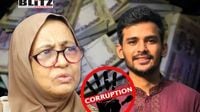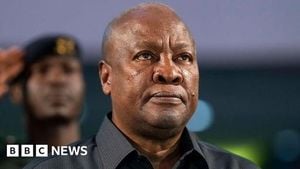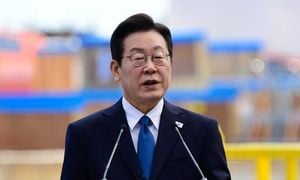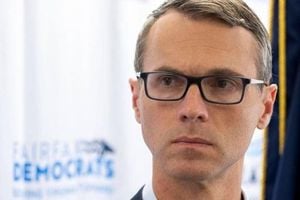On August 18, 2025, the political landscape of Bangladesh was rocked by a series of dramatic developments that have thrown the country’s interim government, led by Muhammad Yunus, into the harshest spotlight yet. In a span of just twenty-four hours, police made high-profile arrests, the International Crimes Tribunal issued sweeping warrants, and a wave of corruption scandals burst into public view—each event feeding the perception of a nation teetering on the edge of a deeper crisis.
It all began with a police raid in Dhaka’s Wari police station area. According to Jugantor, the City Cyber Division of the Counter Terrorism and Transnational Crime (CTTC) Unit of the Dhaka Metropolitan Police detained Shariful, a prominent Awami League leader, on Monday evening. Police say Shariful faces multiple charges linked to the July 2024 protests, with legal proceedings now underway. For many, this was yet another sign of the government’s hardening stance against political opposition.
Shariful’s arrest is hardly an isolated incident. In a parallel development, the International Crimes Tribunal (ICT) issued arrest warrants against former Inspector General of Police Mohammad Javed Patwary and four other senior police officials. The charges? Their alleged involvement in the 2016 murder of seven people in Gazipur’s Patartek area. Among those named is Monirul Islam, former chief of the CTTC unit and a former Superintendent of Police. The authorities, however, have kept the names of some accused under wraps, reportedly to aid in their capture.
These moves come amid a broader crackdown that critics say is politically motivated. Analysts, as reported by MENAFN, have described the flurry of cases filed against former Prime Minister Sheikh Hasina, her party members, and government officials as part of a major political vendetta. The timing is telling: most of these cases were filed immediately after Hasina’s ouster in August 2024, a moment widely regarded as a blow to Bangladesh’s democratic institutions. The interim government, installed in the wake of her departure, has since faced mounting criticism—not only for its treatment of the opposition but also for allegedly providing safe haven to radical and extremist Islamic groups.
Yet, while the government pursues opposition leaders and former officials, its own ranks are now embroiled in what may be the most damaging scandal to date. At the center of the storm is Asif Mahmud Shojib Bhuyain, a controversial adviser to Muhammad Yunus and a key figure in last year’s so-called “Jihadist Coup.”
According to investigative reports in Kaler Kantho and commentary from senior journalist Monjurul Alam Panna, Bhuyain stands accused of orchestrating massive corruption, inflating government project costs, and running extortion rackets under the regime’s protection. The most egregious example surfaced on August 17, 2025, when Bhuyain allegedly pressured the Executive Committee of the National Economic Council (ECNEC) to approve a 158 percent cost hike for a mini-stadium construction project. The per-unit cost soared from Tk 8.86 crore to Tk 14 crore, and the number of stadiums was increased from 186 to 201. While some advisory council members reportedly pushed back, Bhuyain—who oversees the Youth and Sports Ministry—faced no resistance from Chief Adviser Yunus.
The mini-stadium project, originally launched by the Awami League as the Sheikh Russell Mini Stadium initiative, had already seen the completion of 131 stadiums between 2016 and 2019. The project’s second phase, meant to add 55 stadiums between 2019 and 2021, was dramatically expanded under Bhuyain, who also happens to be the son of Billal Hossain, a schoolteacher-turned-contractor. Hossain obtained a lucrative license from the LGED Ministry—controlled by his son—before being forced to relinquish it after intense media scrutiny.
Bhuyain’s troubles don’t end with accusations of financial malfeasance. On July 16, 2025, at 4 a.m., he allegedly met student leader Jane Alam Apu near Hotel Westin in Dhaka to instruct him to extort Tk 10 million from a businessman in Gulshan. Apu, linked to last year’s coup, reportedly confessed to the scheme after being arrested. When pressed by the media about his nocturnal activities, Bhuyain offered a curious defense: “I frequently visit Gulshan for duck curry with friends.”
Further controversy erupted when a viral video emerged, showing Bhuyain using phensedyl and cannabis at his official residence. He was joined by friends, including Dr. Tasnim Jara, a senior leader of the Yunus-backed National Citizen Party. Despite the uproar—and his ambitions to run for parliament from Cumilla’s Muradnagar constituency—Bhuyain has refused to step down from his advisory role, fueling accusations of conflict of interest and deepening the sense of impunity surrounding the regime.
The rot, critics say, spreads far beyond a single adviser. Bangladesh’s health sector, once a point of national pride, is now in disarray. Health Adviser Nurjahan Begum, a long-time Yunus associate, faces allegations of incompetence, nepotism, and corruption. Reports suggest her private secretaries, Dr. Mahmudul Hassan and Tuhin Farabi, embezzled hundreds of crores through bribes for medical appointments and transfers—sums ranging from Tk 200,000 to Tk 2.5 million per posting. Mahmud, it is alleged, smuggled a fortune abroad and now resides in Russia.
Meanwhile, the abrupt cancellation of Bangladesh’s five-year operational plans—a mainstay of the country’s healthcare system since 1998—has left nearly 25,000 health workers jobless or unpaid. The consequences are dire: essential services like vaccination, maternal care, and disease prevention have all but collapsed.
Despite mounting evidence, the Yunus regime continues to deny all corruption allegations. Instead, it has weaponized the Anti-Corruption Commission (ACC) to target Awami League leaders and other political rivals with what critics describe as fabricated charges. Anti-graft campaigners argue that the administration shields its own advisers, turning a blind eye to their alleged crimes while prosecuting opponents.
As one senior BNP leader claimed—citing intelligence sources—at least eight advisers in the interim government are directly implicated in massive corruption. The scandals swirling around Bhuyain and Begum have, for many, shattered the image of Yunus’s regime as a “savior of democracy.” Instead, it is now widely portrayed as a kleptocratic syndicate, enriching itself while ordinary citizens bear the brunt of collapsing healthcare and skyrocketing project costs.
With the country’s institutions under strain and public trust eroding, Bangladesh faces a pivotal moment. Whether these revelations will prompt meaningful change or simply deepen the nation’s malaise remains to be seen. But for now, the sense of betrayal and outrage is unmistakable—and growing by the day.




